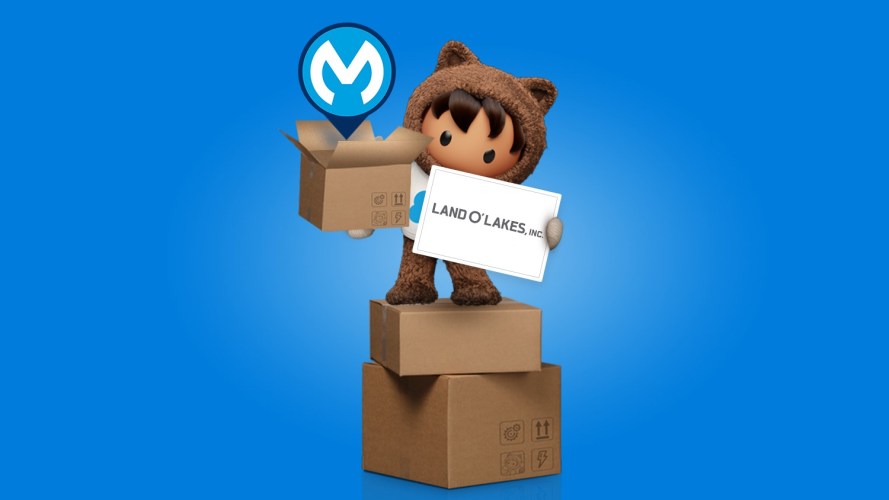Around the world, the COVID-19 pandemic has had a dramatic impact on the flow of goods from producers to consumers. For many businesses, weak links in supply chains have caused disruption and damage. Containment measures and staff shortages have seen processing plants forced to scale back or shut down, for example, leaving suppliers scrambling to adjust their output.
Retail execution has been another part of the challenge, with supermarkets finding themselves understocked and understaffed even as they deal with more stringent regulations on restocking shelves in store. At the same time, restricted physical access to customers has turned the traditional retail strategy of selling face-to-face completely on its head.
One company that has managed to quickly pivot and respond to these unprecedented challenges is food and agriculture business Land O’Lakes, Inc., one of America’s largest cooperatives and best known for its iconic butter brand. By modernizing and integrating its route to market, the company has transformed its global business, delivering growth and customer satisfaction even in times when in-person selling is not an option. Here’s how.
Creating an agile supply chain
When the pandemic hit, the team at Land O’Lakes realized they had a big challenge on their hands if they were to ensure business continuity. With operations across the U.S. and in more than 60 countries, they urgently needed a farmer-to-fork view of the impact the crisis was having across their distribution value chain worldwide. Where were the holdups, shortages, and surpluses occurring for their 3,000-plus cooperative members? What about their field reps and sales teams who were now largely unable to access customers face-to-face?
Land O’Lakes needed rapid insights into the operational needs of its stakeholders — both members and employees. And with the crisis evolving every day, it needed those insights delivered in real time.
To solve these challenges, the company used Salesforce’s MuleSoft to connect its supply chain data — from shipping and procurement to retail partners, employees, and customers. MuleSoft makes it easy to connect applications, data, and devices from separate systems with application programming interfaces, or APIs. These operate like messengers that take requests and tell a system what a user wants it to do, then return the response back to that user. Together, MuleSoft and Salesforce give companies the ability to unlock data across systems, combine it with analytics tools to develop business insights, and ultimately create differentiated, connected customer experiences at a rapid pace.
Now, instead of stakeholders on different pages and teams working in silos, Land O’Lakes can more easily provide timely shipping updates to buyers and supply chain partners for better delivery transparency. The company also has the insights it needs to implement rapid quality control where required, thus creating a smoother, more cohesive customer journey. And it has been able to integrate cloud-based procurement and sourcing solutions with its systems to more accurately reflect product availability and a changing inventory.
Creating an always-on digital storefront
At the same time, Land O’Lakes realized it would need to engage more through digital channels if it was to ensure its usual high standards of service. This was necessary because physical access to its customers was severely restricted. It also needed to ramp up its virtual engagement capabilities to support its marketing, sales and operations teams now working remotely.
The company decided to connect all its purchase, inventory, and pricing data, from legacy systems to business-to-business (B2B) commerce. That way, it could launch online ordering and self-service capabilities for its dealers and retail partners and create an always-on “digital storefront.” Digitizing processes in these ways would help its field reps and sales teams work and sell from anywhere, at any time. And armed with real-time insights into customer needs across both physical and digital channels, the company would also be better able to respond to shifts in demand.
Here, too, the company used MuleSoft to connect multiple tools and systems to its ecommerce platform and so get its digital storefront up and running quickly and efficiently.
Establishing organizational resilience
The results of these changes are impressive. Despite the challenges brought about by COVID-19, Land O’Lakes has been able to increase API development productivity by 25%.
The company’s supply chain now accounts for 50% of overall API transaction volume. With 20% more enterprise processes now being reused between applications, Land O’Lakes has a more connected, transparent, and scalable business.
“Boosting supplier and customer loyalty and resilience are pivotal to ensuring business continuity in a post-COVID-19 world. Salesforce and MuleSoft have helped us do just that, increasing agility in our supply chain to ensure that goods consistently arrive on time and that our customers are notified of their purchase progress,” said Teddy Bekele, chief technology officer, Land O’Lakes, Inc.
“This information also gives our marketing teams the opportunity for more personalization and intelligence, ensuring that every customer receives the right products and promotions to create a win-win for our brand as well as our stakeholders. So, investing in these new digital capabilities is really driving engagement right across our value chain,” said Marc Carlson, chief information officer, Land O’Lakes, Inc.
Want to find out more about how today’s leading consumer goods companies are pivoting to meet new customer needs?
Check out our Leading Through Change blog series to see how other businesses are navigating these uncertain times.n































